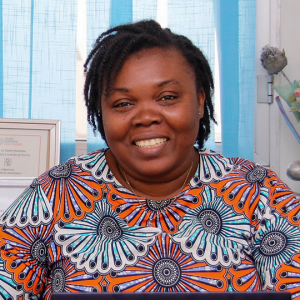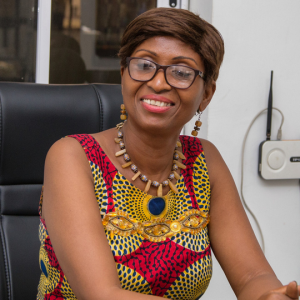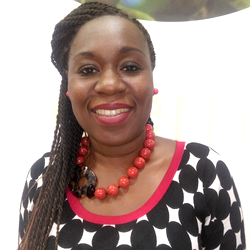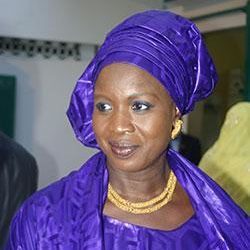Each year, Senegal sees a cohort of 200,000 young people enter the job market, according to official figures from the Ministry of Employment, Vocational Training, Apprenticeship and Integration. Yet, despite…
Each year, Senegal sees a cohort of 200,000 young people enter the job market, according to official figures from the Ministry of Employment, Vocational Training, Apprenticeship and Integration. Yet, despite this abundance of potential manpower, youth unemployment remains a major concern.
This reality raises a crucial question: why this gap between job supply and demand? And why are so many young graduates struggling to find a place in the job market?
In the 21st century, professions have undergone a continuous and growing evolution, requiring graduates not only to have technical qualities, but above all to be able to demonstrate personal and interpersonal skills and attitudes: soft skills.
In this article, we talk to a number of people involved in education, vocational training and entrepreneurship in Senegal, about updating knowledge and the importance of developing soft skills for employability.
” The skills young people are trained in are not always adapted to the real needs of the job market. “
The training of young people must be aligned with the real needs of the labor market to ensure an effective transition from education to employment. On the one hand, this gap can be explained by the fact that too much emphasis is placed on the acquisition of theoretical knowledge to the detriment of practical skills. In the short to medium term, this gap can be bridged by hands-on learning in the early years of training, through internships or work-study schemes. Secondly, there is the technological lag: technological advances are constantly modifying skill requirements, and training programs are not updated quickly enough to keep pace with this evolution.
– Florence Diob, Financing Manager, Financing Fund for Vocational and Technical Training
” Developing soft skills as well as hard skills”
The quality of education has improved significantly, at least from a technical point of view, but employability requires learners to develop soft skills as well as hard skills. Communicating effectively, resolving conflicts, managing interpersonal relations… these skills can be acquired through an initial training circuit, but also via continuing and short-term training courses. Working on these aspects enables you to acquire a complete set of skills that are necessary to succeed and assert yourself in a competitive professional world.
– Harouna Thiam, Responsable Formation-Insertion – Ministry of Vocational and Technical Training
” Teach and professionalize “
There is a notable difference between teaching, which is the transmission of knowledge and concepts, and professionalizing, which aims to prepare learners for a professional environment by developing practical, applicable skills.
We offer a school-enterprise training program, with two application restaurants and a patisserie, so that students are exposed to a professional environment right from the start of their apprenticeship. Since 2006, we have also set up partnerships with leading hotel establishments to recruit young apprentices. In the near future, we also plan to set up a placement agency for our graduates.
– Sidy Dieme, Director of Institut Les Marmitons[1]
” An entrepreneurial school “
The vast majority of training courses teach students how to do a job. We have made it our mission to teach them how to create one. Our actions begin in the first year of the bachelor’s degree, with the inclusion of an entrepreneurial module in the curriculum to complement managerial skills.
The Entrepreneurial School takes place in 3 stages:
- Year 1: Discovery of entrepreneurship with a project idea for each student;
- Year 2: Students create a mini-company or scenario for a service;
- Year 3: Creation of a business plan.
We focus specifically on developing the entrepreneurial skills, business knowledge and aptitudes needed to create, manage and develop a successful business.
– Georges Ndeye, Managing Director, ISM Ziguinchor [2]
” Economists must map employment needs ”
Major labor market trends can be anticipated. Mapping employment needs is crucial to ensuring a better match between supply and demand in the labor market, fostering economic development, reducing unemployment and improving the productivity and competitiveness of workers and companies.
On the other hand, the results of this mapping would enable a greater number of young people to better orient themselves in their choice of academic path, and at the same time prevent a potential skills shortage.
– Mame Pemba Balde, HR Manager CRS West Africa [3]
The development of human capital for adaptability and integration skills in a fast-changing job market underlines the importance of rethinking educational strategies. Training programs must now not only motivate students, but also actively prepare them for their future careers by developing their soft skills.
This approach calls for a reassessment of the role of initial training, with the emphasis on boosting self-confidence, individual fulfillment and the development of cross-disciplinary skills through internships and work experience.
En investissant dans le développement des soft skills, en adaptant les programmes éducatifs aux besoins du marché du travail et en favorisant la collaboration entre ces différents acteurs, le Sénégal peut créer un environnement propice à l’épanouissement professionnel de sa jeunesse et à une croissance économique durable.
[1] *Les Marmitons est un institut de formation aux métiers de la gastronomie, de l’hôtellerie et du tourisme au Sénégal. En savoir plus
[2] ISM Ziguinchor est un établissement d’enseignement privé installé à Ziguinchor depuis 2005. En savoir plus
[3] CRS est une organisation humanitaire internationale, dont les objectifs comprennent la fourniture d’aide d’urgence, la promotion du développement économique et social, ainsi que le plaidoyer pour la justice sociale En savoir plus.



